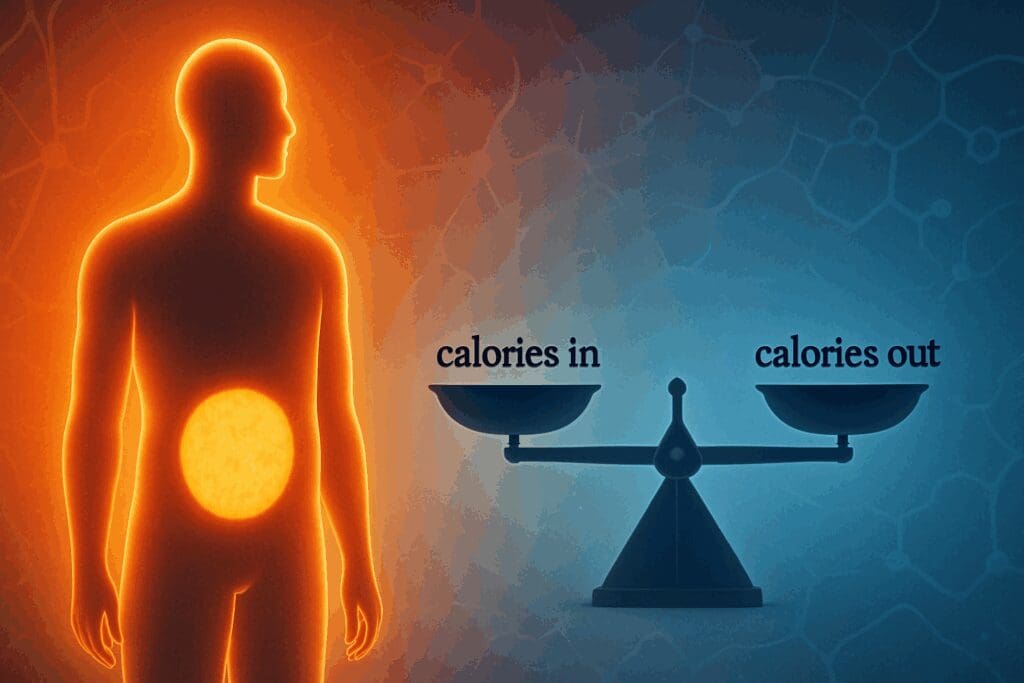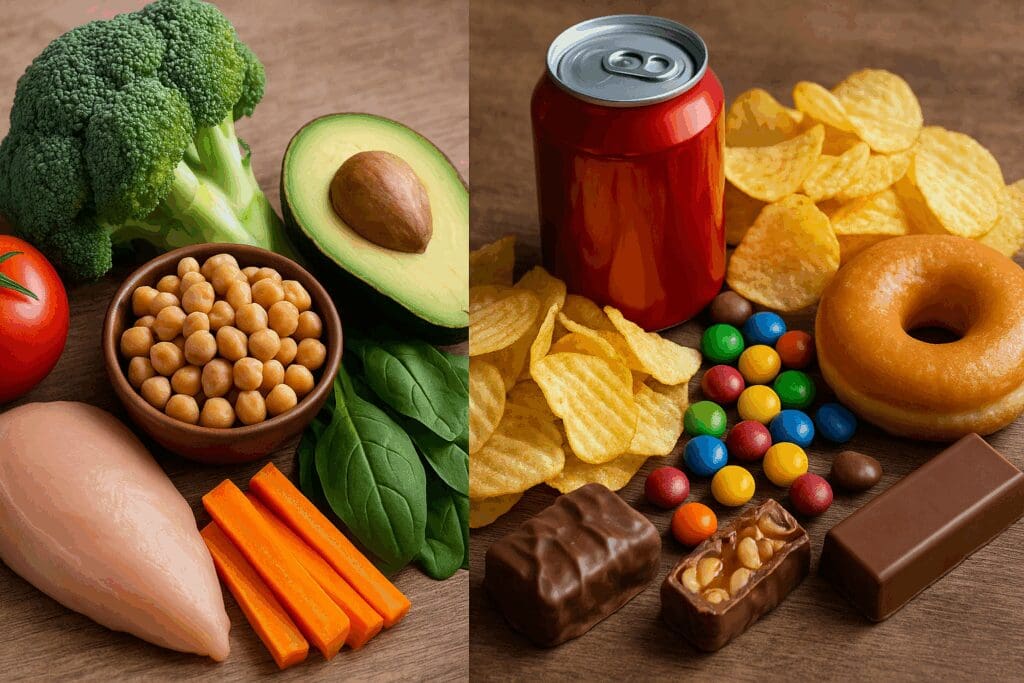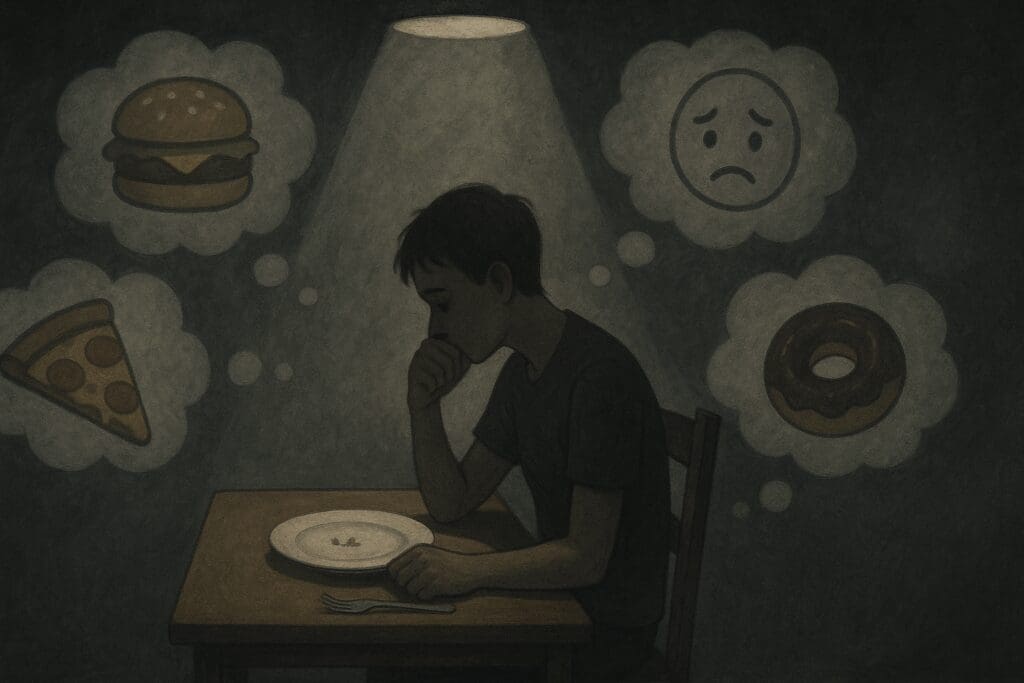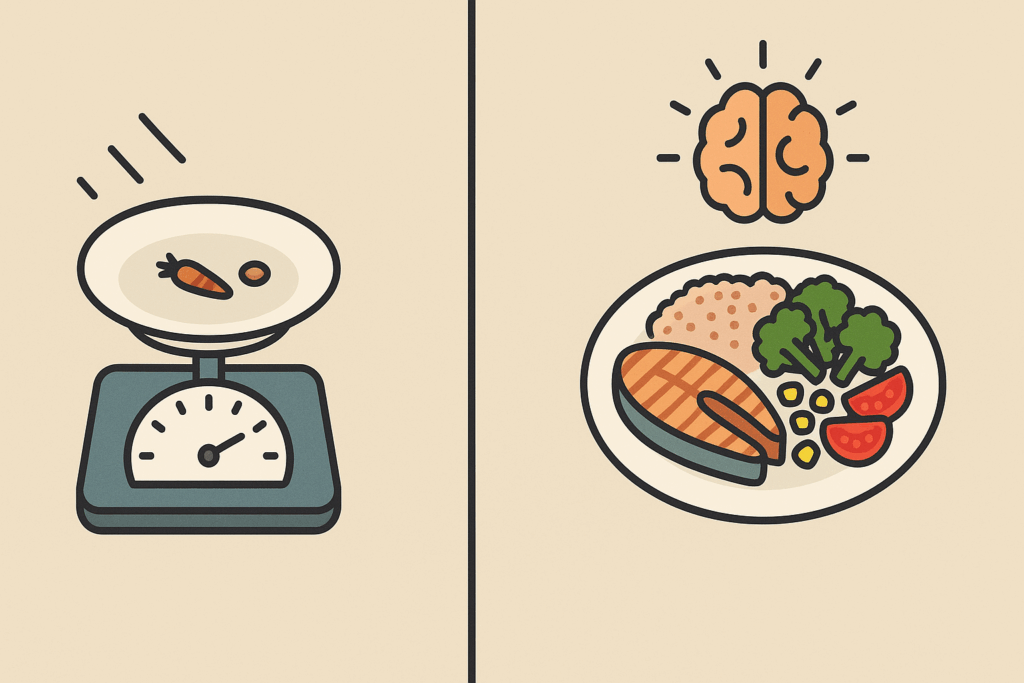Understanding the link between calorie intake and weight loss is at the heart of nearly every dietary plan and health strategy today. One of the most frequently asked questions by individuals striving for better health is this: will eating less make you lose weight? This query seems straightforward, yet it opens the door to a deeply complex and nuanced exploration of human metabolism, psychology, and nutrition science. Contrary to simplistic notions that reducing food intake will automatically lead to weight loss, the truth lies in a deeper understanding of how the body responds to energy balance, nutrient quality, and long-term behavior patterns.
You may also like: 10 Proven Benefits of Natural Herbs for Weight Loss Backed by Science

Caloric Deficit and the Foundations of Weight Loss
At its core, weight loss hinges on the principle of energy balance: when you consume fewer calories than your body needs to function, it taps into stored fat for fuel, resulting in weight loss. This fundamental mechanism is well-established and explains why many believe that simply eating less will lead to shedding pounds. However, while the theory holds true in controlled conditions, real-world application introduces many variables. The body’s metabolic rate, hormonal responses, genetic factors, and even sleep quality influence how effectively a caloric deficit translates to fat loss.
The role of metabolic adaptation cannot be overstated. When caloric intake drops significantly, the body may respond by lowering its basal metabolic rate (BMR), making it more efficient at conserving energy. This means that over time, eating less can become less effective for losing weight, especially if the reduction in calories is too steep or prolonged. This phenomenon, often referred to as “starvation mode,” is the body’s evolutionary defense mechanism against perceived famine. Consequently, a moderate, sustainable caloric deficit is more effective than drastic reductions, which can backfire.

Quality Over Quantity: Why All Calories Are Not Created Equal
A common misconception is that weight loss is solely a numbers game—eat less, weigh less. Yet emerging research in nutrition science reveals that the type of calories consumed plays a crucial role in how the body processes food, feels satiated, and manages energy. For example, 500 calories from a sugary snack do not have the same metabolic impact as 500 calories from lean protein and vegetables. Foods rich in fiber and protein increase satiety and require more energy to digest, contributing to a higher thermic effect of food (TEF).
Furthermore, nutrient-dense foods help maintain lean muscle mass, regulate blood sugar levels, and support hormonal health, all of which are vital for effective weight management. Relying on low-quality, processed foods while eating less can lead to nutrient deficiencies, energy crashes, and increased cravings—ultimately undermining weight loss efforts. Therefore, focusing on the quality of food is as important, if not more, than simply reducing portion sizes or meal frequency.
Can Eating Less Help Lose Weight Without Exercise?
Another common variant of the question is whether eating less alone is sufficient for weight loss without incorporating physical activity. The answer depends on individual goals, health status, and lifestyle factors. It is possible to lose weight through diet alone, as long as a caloric deficit is maintained. However, this method often leads to loss of both fat and muscle mass. Without resistance training or regular physical activity, muscle tissue is broken down for energy, which can reduce metabolic rate over time and make it more difficult to sustain weight loss.
Exercise, particularly strength training, plays a critical role in preserving lean body mass during periods of caloric restriction. It also improves insulin sensitivity, cardiovascular health, and mood—factors that contribute to the sustainability of any weight loss program. While eating less can indeed result in weight loss, combining it with regular physical activity enhances results and improves long-term outcomes.

Will Eating Less Make You Lose Weight if Your Metabolism Is Slow?
One of the most frustrating experiences for individuals trying to lose weight is feeling like they are eating less and still not seeing results. In many cases, this can be attributed to a slow or adaptive metabolism. A slow metabolism means the body burns fewer calories at rest, which can make achieving a caloric deficit more challenging. This often occurs as a result of aging, hormonal imbalances, or prolonged periods of very low calorie intake.
The solution is not necessarily to eat even less, but to optimize metabolism through strategic nutrition and lifestyle interventions. Eating enough protein, engaging in resistance training, getting adequate sleep, and managing stress can all contribute to a more efficient metabolism. In such cases, the focus shifts from simply eating less to eating smarter. Rather than drastically cutting calories, it becomes essential to nourish the body adequately while still creating a modest energy deficit that the body can respond to without triggering metabolic slowdown.
Does Eating Less Cause Weight Loss Long-Term?
Short-term weight loss through reduced food intake is common and often yields visible results within a few weeks. However, the long-term success of losing weight by eating less depends heavily on sustainability. Extreme caloric restriction is rarely maintainable and can lead to binge eating, nutrient deficiencies, and psychological stress. The body, perceiving a threat to its energy stores, may respond by increasing hunger hormones such as ghrelin and decreasing satiety hormones like leptin, making it more difficult to stick to the plan.
Successful long-term weight management involves building habits that promote a balanced, nutrient-rich diet alongside mindful eating practices. Rather than focusing on restriction, it is more effective to prioritize satisfaction, energy levels, and overall well-being. Behavioral strategies such as meal planning, food journaling, and cognitive restructuring help individuals develop a healthy relationship with food. In this context, eating less becomes part of a broader strategy aimed at achieving and maintaining a healthy weight without compromising mental or physical health.

Will Eating Less Help You Lose Weight Without Sacrificing Muscle Mass?
One of the risks associated with eating less is the potential loss of muscle mass, especially if protein intake is inadequate or physical activity is minimal. Muscle is metabolically active tissue that plays a vital role in maintaining a healthy weight. Preserving muscle while losing fat is critical not only for appearance and strength but also for metabolic health.
To prevent muscle loss while eating less, a high-protein diet combined with resistance training is essential. Protein provides the amino acids needed to repair and build muscle tissue, while strength exercises signal the body to preserve muscle even in a calorie deficit. Furthermore, spacing protein intake evenly throughout the day and consuming a protein-rich meal after exercise can enhance muscle protein synthesis.
Adequate sleep and stress management also influence muscle preservation. Poor sleep quality and chronic stress increase cortisol levels, which can contribute to muscle breakdown and fat retention. Therefore, a comprehensive approach that includes nutritional quality, physical activity, and lifestyle management is necessary for effective weight loss without sacrificing muscle.

Psychological Impacts of Eating Less
The psychological dimension of eating less is often overlooked but significantly influences the success of weight management efforts. Restrictive eating patterns can lead to feelings of deprivation, increased preoccupation with food, and disordered eating behaviors. Dieting culture, which promotes rigid rules and food avoidance, may contribute to cycles of yo-yo dieting and emotional eating.
Instead of adopting a deprivation mindset, individuals are encouraged to shift toward intuitive eating practices. This involves listening to hunger and fullness cues, honoring cravings in moderation, and cultivating a non-judgmental attitude toward food. Research suggests that individuals who adopt intuitive eating habits are more likely to maintain a healthy weight and experience better psychological well-being compared to chronic dieters.
Mindfulness practices, such as mindful eating and meditation, can also support individuals in making conscious food choices and reducing emotional eating. When eating less is approached from a place of self-care rather than punishment, it becomes more sustainable and aligned with long-term health goals.
Will Eating Less Make You Lose Weight If You Skip Meals?
Skipping meals is a common strategy used by those trying to eat less, but its effectiveness depends on context. While meal skipping can reduce overall calorie intake, it can also lead to increased hunger later in the day, which may result in overeating. The timing and frequency of meals play a role in regulating appetite hormones and energy levels.
Intermittent fasting, a structured form of meal skipping, has gained popularity as a weight loss method. Some research supports its efficacy in reducing body weight and improving metabolic health. However, it is not suitable for everyone, and its success depends on food choices during eating windows. Skipping meals without nutritional planning can lead to energy crashes, irritability, and reduced focus, especially if blood sugar levels drop.
Ultimately, the goal is to create an eating pattern that supports consistent energy levels and satiety. Rather than arbitrarily skipping meals, individuals should aim to structure their eating in a way that aligns with their lifestyle, hunger cues, and nutritional needs. When done mindfully, reducing meal frequency can contribute to weight loss, but it must be part of a holistic and well-informed plan.
The Role of Hormones in Weight Regulation
Hormonal regulation plays a significant role in how the body responds to changes in food intake. Hormones such as insulin, leptin, ghrelin, cortisol, and thyroid hormones influence appetite, fat storage, and energy expenditure. For instance, insulin helps regulate blood sugar levels but also promotes fat storage when elevated chronically. Leptin, produced by fat cells, signals satiety to the brain, while ghrelin stimulates hunger.
When eating less, the balance of these hormones can shift. Ghrelin levels tend to rise, increasing hunger, while leptin levels may decrease, reducing satiety. This hormonal response can make it difficult to maintain a calorie deficit over time. Additionally, chronic stress elevates cortisol levels, which can lead to increased fat storage, particularly in the abdominal area.
Understanding these hormonal dynamics highlights the importance of adopting a balanced approach to eating less. Ensuring adequate nutrient intake, managing stress, and getting quality sleep all support hormonal balance. Rather than fighting the body’s natural signals, successful weight loss strategies work with them to promote long-term success.

Losing Weight by Eating Less vs. Eating Smarter
The idea that eating less leads to weight loss has merit, but it must be paired with intelligent dietary choices to be truly effective. Eating smarter involves selecting nutrient-dense foods, practicing portion control, and understanding the body’s hunger and fullness signals. It also means considering the timing of meals, the balance of macronutrients, and the inclusion of whole, minimally processed foods.
For example, replacing a calorie-dense breakfast pastry with a protein-rich smoothie containing spinach, berries, and Greek yogurt not only reduces calories but also provides lasting energy and satiety. Similarly, swapping sugary snacks for fruits and nuts improves nutritional quality while maintaining a sense of fullness. These small, smart changes add up over time and support sustainable weight loss.
Meal preparation, cooking at home, and reading nutrition labels are practical strategies that empower individuals to eat smarter. Education about portion sizes and understanding how different foods impact energy levels further enhances dietary choices. While eating less can initiate weight loss, it is eating smarter that ensures it is healthy and lasting.
Will Eating Less Make You Lose Weight If You Have a History of Dieting?
For those with a history of frequent dieting, eating less may not yield the same results as it would for someone with no such background. Repeated cycles of weight loss and regain, commonly known as yo-yo dieting, can disrupt metabolic function, alter hormone levels, and damage the body’s trust in consistent nourishment. This metabolic inflexibility makes it harder to lose weight through caloric reduction alone.
In such cases, a period of metabolic healing may be necessary before attempting another calorie deficit. This involves gradually increasing calorie intake to maintenance levels while focusing on nutrient-dense foods, adequate protein, and resistance training. Once the metabolism stabilizes, a modest calorie reduction can be more effective.
Psychologically, individuals with a history of dieting may also experience increased food guilt and fear of weight gain. Addressing these issues through therapy or support groups can aid in creating a healthier relationship with food. Thus, while eating less can contribute to weight loss, prior dieting history should be considered to ensure a safe and effective approach.
The Importance of Personalization in Nutrition
No single diet or strategy works for everyone. Genetics, lifestyle, health conditions, and personal preferences all influence how an individual responds to eating less. Personalized nutrition plans take into account these variables and tailor strategies that are both effective and sustainable.
Working with a registered dietitian or certified nutritionist can provide guidance on creating a plan that meets individual needs. Tools like metabolic testing, body composition analysis, and dietary assessments help fine-tune caloric needs and identify nutrient gaps. Personalized plans also consider cultural food preferences, cooking skills, and daily routines, which enhance adherence and success.
Personalization also includes flexibility. Allowing for occasional indulgences, social meals, and food variety ensures that the eating plan remains enjoyable and realistic. In this way, eating less becomes a personalized journey rather than a one-size-fits-all solution.
FAQ: The Science, Psychology, and Practical Realities of Eating Less for Weight Loss
Will Eating Less Make You Lose Weight Even If You Eat Late at Night?
Yes, but with caveats. While eating less overall can create the caloric deficit necessary for weight loss, eating most of your calories late at night may interfere with sleep quality, hormone regulation, and hunger cues the next day. Studies suggest that the body’s circadian rhythm influences how efficiently it metabolizes food, meaning that late-night eating may promote fat storage more than eating earlier in the day. Even if the total calorie intake is reduced, skewing consumption to late hours can contribute to metabolic dysfunction, such as elevated insulin resistance or reduced satiety signaling. Therefore, if you’re attempting to lose weight by eating less, aligning your meals with daylight hours and natural activity rhythms may yield better results than focusing solely on calories consumed.
Can Eating Less Help Lose Weight in People with PCOS or Insulin Resistance?
Yes, but the approach requires customization. For individuals with polycystic ovary syndrome (PCOS) or insulin resistance, losing weight by eating less is possible but often more difficult due to hormonal imbalances that impair glucose metabolism and increase appetite. The key lies in stabilizing blood sugar levels by emphasizing low-glycemic foods, increasing dietary fiber, and maintaining a consistent meal schedule. Eating less in this context also means prioritizing nutrient quality—cutting calories from sugar and refined carbs is more beneficial than reducing fats or proteins. When managed carefully, even a modest caloric reduction can support weight loss while improving hormonal profiles, but medical supervision and targeted nutrition strategies are strongly recommended.
Does Eating Less Cause Weight Loss During Menopause?
It can, but the hormonal changes during menopause may blunt expected results. Estrogen levels decline during menopause, often leading to a slower metabolism and a higher propensity to store abdominal fat. In this life stage, eating less can still induce weight loss, but the body’s response may be slower than in earlier years. Incorporating strength training and prioritizing protein intake becomes essential to counteract muscle loss, which further reduces metabolic rate. In menopausal women, successful weight management depends not just on cutting calories but on enhancing metabolic flexibility through a balance of nutrition, movement, and stress management techniques.
Will Eating Less Help You Lose Weight If You Have a Sedentary Lifestyle?
Possibly, but the outcome is limited without movement. If your daily energy expenditure is low due to a sedentary routine, creating a caloric deficit through eating less might lead to some weight loss. However, it’s likely to be less sustainable and more prone to plateaus. Additionally, a sedentary lifestyle reduces insulin sensitivity and compromises cardiovascular health, even if weight is reduced. Ideally, combining a moderate reduction in calories with increased non-exercise activity thermogenesis (NEAT), such as standing more often or walking throughout the day, significantly enhances your chances of long-term weight loss success. Focusing only on dietary restriction without addressing inactivity will likely produce incomplete and fragile results.
How Does Eating Less Affect Mental Clarity and Cognitive Performance?
Surprisingly, strategic reductions in calorie intake may enhance mental performance—up to a point. Mild caloric restriction, particularly when accompanied by a nutrient-rich diet, has been associated with improved memory, sharper focus, and even reduced risk of neurodegenerative diseases. However, drastic reductions in food intake or skipping meals without proper nutrient timing can lead to brain fog, irritability, and reduced concentration due to blood glucose fluctuations. The key is to avoid nutrient deficiencies by focusing on foods high in omega-3s, B vitamins, and antioxidants while eating less. For those using intermittent fasting or time-restricted eating, mental performance may improve after an initial adjustment period, provided hydration and nutrition are properly maintained.
Losing Weight by Eating Less: How Does It Impact Gut Health?
Losing weight by eating less can positively or negatively affect gut health depending on food choices. Reducing intake of processed, high-sugar foods supports beneficial gut bacteria and may reduce bloating and inflammation. However, if eating less results in a sharp decline in dietary fiber, the diversity and abundance of gut microbiota can decrease, impairing digestion and immunity. Ensuring that reduced calorie meals are still rich in prebiotic fibers from foods like legumes, leafy greens, and whole grains helps maintain gut health. Additionally, incorporating fermented foods such as yogurt, kefir, or kimchi while eating less can further support a balanced microbiome and contribute to long-term digestive health.
Does Eating Less Cause Weight Loss More Effectively When Combined with Stress Reduction?
Yes—when stress management is combined with dietary strategies, the impact is significantly amplified. Chronic stress elevates cortisol levels, which not only increases appetite but also shifts fat storage toward the abdominal region. Even if you’re eating less, elevated stress hormones can counteract fat loss efforts by slowing metabolic processes and encouraging emotional eating behaviors. Incorporating stress-reducing practices like deep breathing, regular sleep schedules, journaling, or even spending time in nature can make dietary efforts more effective. This holistic approach ensures that the physiological and psychological environments are aligned in support of fat loss, not working against it.
Will Eating Less Make You Lose Weight If You Drink Alcohol Regularly?
Probably not to the extent you’d expect. Alcohol provides “empty calories” with no nutritional benefit and can disrupt hormonal and metabolic balance, making fat loss more difficult. Even if you’re eating less overall, consuming alcohol—even in moderate amounts—can hinder weight loss by slowing liver function, increasing appetite, and disrupting sleep, which affects hunger hormones. Moreover, many people underestimate the caloric load of alcoholic beverages and the accompanying snacks or late-night cravings they often trigger. Reducing alcohol intake while eating less dramatically improves the chances of sustained weight loss, especially when the goal is fat loss rather than just weight reduction on the scale.
Can Eating Less Help Lose Weight Permanently, or Will the Weight Come Back?
Eating less can initiate weight loss, but maintaining the results requires a long-term shift in behavior and environment. Most people who regain lost weight do so because the eating habits that created the deficit were not sustainable or failed to transition into a maintenance phase. Permanent weight loss is more likely when caloric reduction is paired with education, behavioral support, and habit-building around mindful eating, physical activity, and food preparation. Techniques like habit stacking, self-monitoring via apps or journaling, and creating a supportive home environment make a significant difference. The success of losing weight by eating less lies not in the short-term numbers but in one’s ability to internalize sustainable behaviors over time.
Understanding Real Results: Will Eating Less Make You Lose Weight in a Way That Lasts?
Realistically, yes—but only when the process aligns with your physiology, psychology, and lifestyle. The question of will eating less make you lose weight is less about caloric math and more about holistic alignment. People who take a slow, informed approach—choosing whole foods, customizing meal timing, adjusting portion sizes, and addressing emotional eating—see more durable outcomes. Weight loss is not linear; it includes plateaus, reversals, and psychological hurdles. Lasting change happens when the decision to eat less is anchored in personal values, health goals, and a flexible framework that allows for joy, indulgence, and real-world complexity. Sustainability, not speed, determines whether weight loss achieved through eating less will endure.
Conclusion: Will Eating Less Make You Lose Weight? A Nuanced, Evidence-Based Answer
In conclusion, the question of will eating less make you lose weight is best answered with a nuanced understanding of human physiology, psychology, and nutrition science. While eating less can indeed help reduce body weight, especially when it creates a caloric deficit, the quality of food, individual metabolic factors, and psychological well-being all influence the outcome. Successful weight loss is not just about eating less but eating smarter, preserving muscle, managing hormones, and cultivating sustainable habits. A personalized, balanced, and informed approach is the key to long-term weight management and overall health. Rather than adopting a mindset of restriction, individuals are encouraged to view eating less as one component of a comprehensive strategy that honors the body’s needs and supports lasting well-being.
Further Reading:
Is It Possible to Lose Weight Without Exercising?
Which Will Help You Lose Weight Faster: Eating Better Or Exercising More?
Why “Eat Less, Move More” Doesn’t Actually Work for Weight Loss, According to Dietitians



